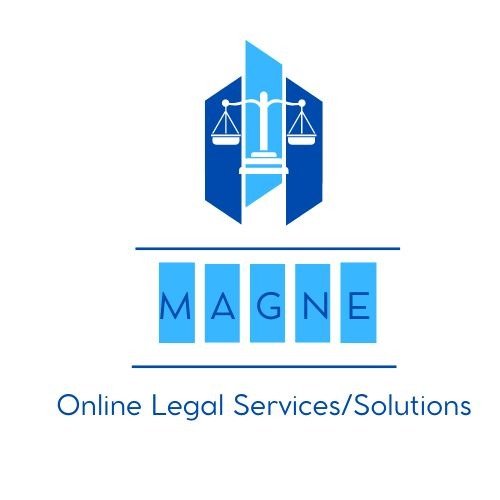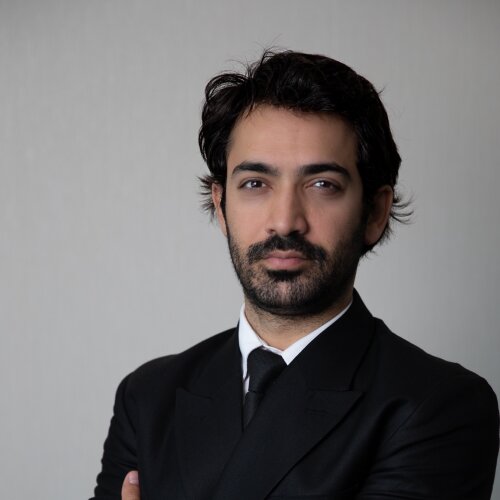Best Art & Cultural Property Law Lawyers in Baku
Share your needs with us, get contacted by law firms.
Free. Takes 2 min.
List of the best lawyers in Baku, Azerbaijan
About Art & Cultural Property Law in Baku, Azerbaijan
Art & Cultural Property Law in Baku, Azerbaijan, is a specialized area of legal practice that focuses on the rights, transactions, and regulations surrounding artworks and cultural artifacts. Given Azerbaijan's rich cultural heritage and its strategic location at the crossroads of Europe and Asia, the country has developed a robust legal framework to protect its numerous cultural sites, museum collections, and historic artifacts. Legal professionals in this field work to ensure adherence to national and international conventions, addressing issues such as ownership, provenance, the protection of cultural heritage, and the illicit trade of cultural assets.
Why You May Need a Lawyer
Individuals may require legal advice in Art & Cultural Property Law for various reasons, including:
- Disputes over ownership or provenance of artworks or artifacts.
- Legal issues arising from the acquisition, sale, or loan of art pieces.
- Challenges in navigating national and international regulations related to the protection and repatriation of cultural assets.
- Advisory on tax issues and export licenses concerning art transactions.
- Representation in cases of theft or illicit trafficking of cultural property.
Local Laws Overview
Azerbaijan has several key laws that govern art and cultural property, reflecting its dedication to preserving cultural heritage. These include:
- The Law on Culture, which offers guidelines for the protection and use of cultural treasures.
- The Law on the Protection of Historical and Cultural Monuments, outlining responsibilities for maintaining and restoring heritage sites.
- The Law on Museums, which regulates the management and operations of museums holding cultural artifacts.
- National regulations that reinforce international conventions like UNESCO's conventions on cultural heritage and the fight against illicit trafficking.
Frequently Asked Questions
What is considered cultural property in Azerbaijan?
In Azerbaijan, cultural property includes any objects that have historical, artistic, or archaeological significance, including artifacts, artworks, monuments, and structures that represent the cultural heritage of the country.
Is it legal to export art from Azerbaijan?
Exporting art from Azerbaijan requires compliance with specific regulations and often a permit. The export of cultural property is strictly controlled to prevent the loss of national treasures.
How can I verify the provenance of an artwork?
To verify an artwork's provenance, engage a qualified art expert or lawyer who can research the piece’s background, check documentation, inspect authenticity certificates, and utilize registries or databases of stolen art.
What are my rights if cultural artifacts are discovered on my property?
If cultural artifacts are discovered on your property, Azerbaijani law mandates that you report the finding to the relevant authorities. The state usually holds the rights to such artifacts, although finders may receive a reward or recognition.
What should I do if I suspect art fraud?
If you suspect art fraud, it is crucial to gather evidence and report the case to law enforcement or consult with an art law attorney to evaluate your legal options and pursue potential claims.
How do I protect my art collection legally?
To protect your art collection, consider obtaining proper documentation, insuring your pieces, securing them physically, and consulting with a lawyer on estate planning and transfer of ownership.
What are the penalties for art theft in Azerbaijan?
Penalties for art theft in Azerbaijan can include significant fines, imprisonment, and restitution of the stolen item. The severity depends on the value and cultural importance of the stolen property.
Is restored art still considered authentic?
Restored art may still be considered authentic, but its value might be affected. The degree and method of restoration are crucial, and thorough documentation should accompany any restored piece to maintain its provenance.
How does Azerbaijan enforce cultural property laws?
Azerbaijan employs various governmental bodies and collaborates with international organizations to monitor compliance, prevent illegal trafficking, and recover stolen or illegally exported artifacts.
Can I reclaim artwork confiscated in previous decades?
Reclaiming art confiscated in previous decades can be legally complex, often involving international legal frameworks and negotiations. Consulting with a lawyer specializing in art restitution is essential.
Additional Resources
Consider reaching out to the following resources for more information or assistance:
- The Ministry of Culture of the Republic of Azerbaijan: oversees cultural protection policies.
- Azerbaijan National Committee of ICOM (International Council of Museums): assists with museum-related enquiries.
- UNESCO Azerbaijan: for international conventions on cultural heritage protection.
- Legal advice centers focusing on art law and cultural heritage protection in Baku.
Next Steps
If you require legal assistance in Art & Cultural Property Law in Baku, consider the following steps:
- Identify the specific legal issue or question you are facing.
- Gather all relevant documents and evidence related to your case.
- Research and identify a qualified lawyer in Baku specializing in art and cultural property law.
- Schedule a consultation to discuss your legal needs and potential strategies.
- Follow your lawyer's guidance on the appropriate legal actions to take.
Lawzana helps you find the best lawyers and law firms in Baku through a curated and pre-screened list of qualified legal professionals. Our platform offers rankings and detailed profiles of attorneys and law firms, allowing you to compare based on practice areas, including Art & Cultural Property Law, experience, and client feedback.
Each profile includes a description of the firm's areas of practice, client reviews, team members and partners, year of establishment, spoken languages, office locations, contact information, social media presence, and any published articles or resources. Most firms on our platform speak English and are experienced in both local and international legal matters.
Get a quote from top-rated law firms in Baku, Azerbaijan — quickly, securely, and without unnecessary hassle.
Disclaimer:
The information provided on this page is for general informational purposes only and does not constitute legal advice. While we strive to ensure the accuracy and relevance of the content, legal information may change over time, and interpretations of the law can vary. You should always consult with a qualified legal professional for advice specific to your situation.
We disclaim all liability for actions taken or not taken based on the content of this page. If you believe any information is incorrect or outdated, please contact us, and we will review and update it where appropriate.










